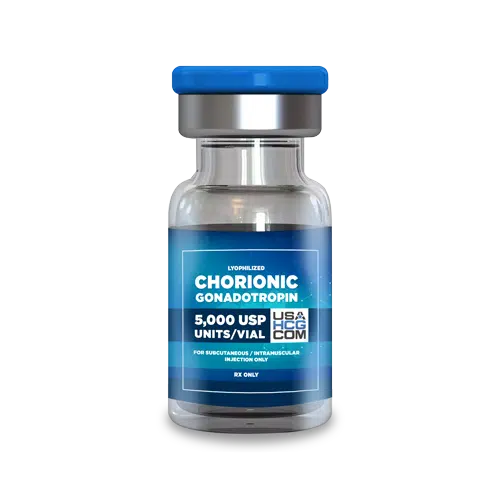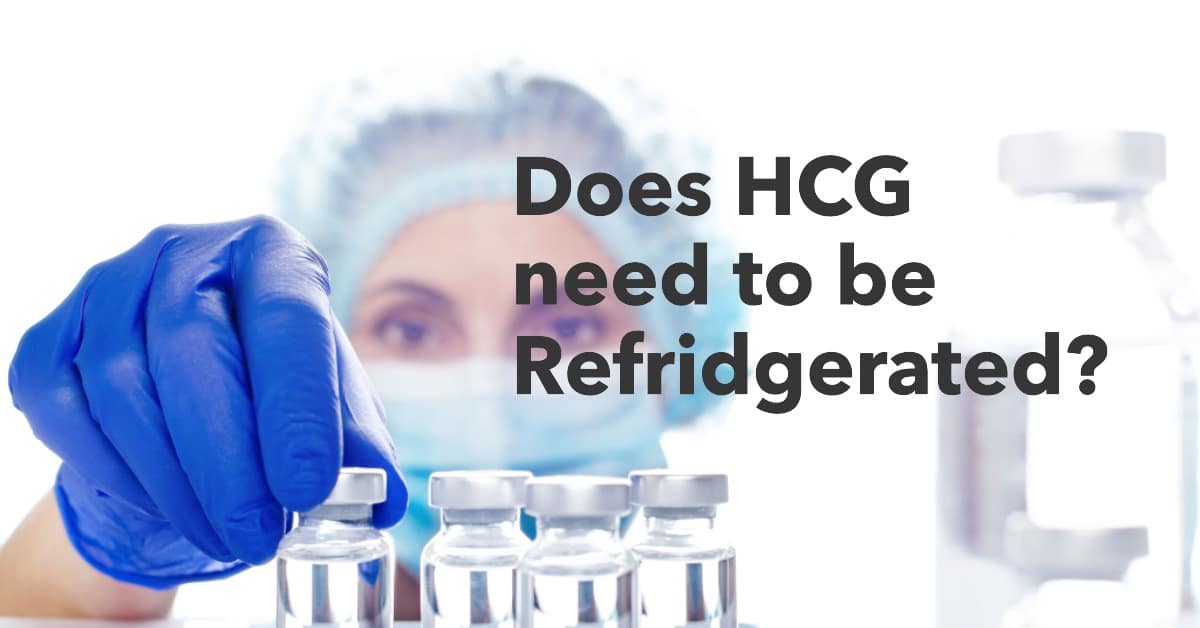Did you know that improper storage of pregnyl, a type of HCG, can affect its potency and effectiveness in supporting pregnancy?
To get the best results, it’s essential to store your HCG in the right conditions, such as refrigerating or maintaining room temperature. Let’s cut to the chase and dive into some crucial factors.
First off, temperature plays a significant role in maintaining HCG quality, especially for medications like Pregnyl that support pregnancy. Remember to refrigerate it, ideally between 36°F and 46°F (2°C-8°C) – think eggs in your fridge!
Protecting your HCG from light and moisture is also vital; an opaque container will do the trick. And don’t forget to use an alcohol wipe before each use to ensure cleanliness. Lastly, consider the expiration date when storing HCG; generally speaking, it lasts for about 30-40 days once mixed.
So there you have it, some quick tips on how to keep your Pregnyl HCG fresh and effective! Stay tuned for more detailed info on proper storage techniques.
What are the different injectable forms of HCG?
Injectable forms of HCG (human chorionic gonadotropin) are commonly used for various medical and weight loss purposes. These injections come in two primary forms: freeze-dried (lyophilized) and premixed.
Proper storage of HCG is crucial to maintain its effectiveness and stability. In this article, we will discuss the storage implications for both freeze-dried and premixed HCG injections.
- Freeze-dried (Lyophilized) HCG:
Freeze-dried HCG is provided as a powder that needs to be reconstituted with a sterile solution or bacteriostatic water before it can be injected. The storage requirements for freeze-dried HCG are as follows:
- Before Reconstitution: Store the freeze-dried HCG powder in a cool, dry place away from direct sunlight. This kind of hcg can be stored in a dark cool drawer actually, however the ideal storage temperature is between 36°F to 46°F (2°C to 8°C). It is recommended to keep the HCG powder in its original packaging until it is ready to be reconstituted.
- After Reconstitution: Once the HCG powder has been mixed with the sterile solution, it must be stored in the refrigerator. The ideal storage temperature is between 36°F to 46°F (2°C to 8°C). Keep the reconstituted HCG in a sealed container, away from direct sunlight. It is important to use the reconstituted HCG within 30 days, as its potency diminishes over time.
- Premixed HCG (prefilled syringe):
Premixed HCG injections come in a ready-to-use liquid form, eliminating the need for reconstitution. The storage requirements for premixed HCG are as follows:
- Before Opening: Store the prefilled syringe HCG in a cool, dry place away from direct sunlight. The ideal storage temperature is between 36°F to 46°F (2°C to 8°C). It is recommended to keep the HCG in its original packaging until it is ready to be used.
- After Opening: Once the premixed HCG is opened, it should be stored in a refrigerator at a temperature between 36°F to 46°F (2°C to 8°C). Make sure to keep it away from direct sunlight and avoid freezing the HCG. It is essential to use the opened HCG within a specified period, usually mentioned on the packaging, to ensure its effectiveness.
Reconstitution and Administration Methods
Mixing with Bacteriostatic Water
Reconstituting HCG, such as pregnyl, involves mixing the unit powder in a vial with bacteriostatic water. Follow these steps for proper reconstitution, and remember to refrigerate the mixture in a syringe for storage.

- Clean the drug vial containing the powder medicine for reconstitution and the bacteriostatic water vial with an alcohol swab
- If the hormon is contained in a sterile multidose vial, it can usually hold around 2-3ml of mixing water.
- Draw up the required amount of bacteriostatic water using a syringe for reconstitution of the hcg vial and insert it directly into the vial through the rubber top (make sure you have taken out an equal amount of air first).
- Gently swirl (don’t shake) until completely dissolved.
Subcutaneous vs. Intramuscular Injections
There are two common methods for administering HCG injections:
- Subcutaneous (SubQ): Injected just below the skin, typically in fatty areas like abdomen or thigh.
- Intramuscular (IM): Injected directly into muscle, usually in thigh or buttocks.
Consult your healthcare provider or doctor to determine which medicine, product, or syringe method is best for you.
Proper Needle Selection and Disposal
Selecting the right needle is crucial for safe administration:
- For SubQ injections, use a 25-gauge to 30-gauge syringe with a needle that’s 0.5 inch to 5/8 inch long. Mix the hcg vial with room temperature water before administering.
- For IM injections, use a 22-gauge to 25-gauge syringe with a needle that’s 1 inch to 1.5 inches long. Ensure the reconstitution is done properly and store the medication at room temperature.
Dispose of used syringe needles properly in a sharps container to prevent injury or contamination. Store reconstituted medications at room temperature to maintain their efficacy.
Sterile Techniques for Safe Administration
Follow these guidelines to ensure safe injection practices:
- Wash hands thoroughly before handling any supplies.
- Clean the injection site with an alcohol swab and let it air dry. Before use, store the syringe and bacteriostatic water at room temperature.
- Always store new needles and syringes at room temperature; never reuse them for each use.
- Store reconstituted HCG in a refrigerator (between 36°F – 46°F) until ready for use, and ensure the syringe is kept at room temperature.
By adhering to these guidelines, you can safely and effectively administer HCG injections with a syringe while ensuring the product remains potent and uncontaminated. Store the HCG at room temperature for optimal results.
Comparing Fertility Medication Products
Branded vs. Generic HCG Options
When looking for HCG (Human Chorionic Gonadotropin) fertility medications, you’ll find both branded and generic options.
The branded product, Pregnyl, is known for its quality and effectiveness. However, generic versions can be more affordable and may work just as well for some women.
Different Forms of HCG
HCG fertility medications come in various forms:
- Injections
- Drops
- Pellets
It is important to note that oral supplements, such as drops and pellets, do not actually contain the HCG chemical. The HCG hormone is a large protein molecule that cannot reliably absorbed through the digestive system.
Therefore, any product claiming to contain HCG in an oral form is likely to be ineffective, as the hormone will be broken down during digestion and hardly absorbed into the bloodstream.
This is why HCG is typically administered through injections, which deliver the hormone directly into the body and bypass the digestive system.
If you are considering using HCG for fertility treatments or any other purpose, it is crucial to consult with a healthcare professional to ensure you are using a safe and effective form of the hormone.
Price Comparisons and Insurance Coverage
The cost of HCG fertility medications can vary significantly depending on the brand, form, and dosage at different stores. Some insurance plans may cover part or all of the expenses; however, this is not always guaranteed.
It’s crucial to compare prices at various stores and consult with your insurance provider to determine what coverage options are available to you.
Availability and Accessibility
HCG fertility medications are typically accessible through prescription from a healthcare provider specializing in reproductive medicine or at a specialized store.
These medicines help stimulate ovulation by increasing FSH (follicle-stimulating hormone) levels in women with low ovarian reserve or other hormonal imbalances.
Other common fertility drugs include:
- Progesterone: helps support the uterine lining during early pregnancy
- Leuprolide: suppresses hormones that could interfere with ovulation induction
- Clomiphene citrate: stimulates ovaries to produce multiple mature eggs
Remember that each woman’s situation is unique; therefore, it’s essential to work closely with a healthcare professional when selecting the most suitable medication for your specific needs from a store.
Preparing for HCG Injection Process
Gather Supplies
Before starting the injection process, make sure to have all necessary supplies from the store.
- HCG vial (chorionic gonadotropin)
- Bacteriostatic water
- Alcohol wipes
- Needle
Clean Injection Site
Properly clean the injection site with an alcohol wipe purchased from a store to prevent infection.
Follow Dosage Instructions
Carefully follow the dosage instructions provided by your healthcare provider. Accurate dosing is essential for supporting pregnancy and embryo implantation.
Monitor Side Effects and Reactions
Keep an eye out for any side effects or reactions after administering the HCG injection. Some common side effects include:
- Pain or swelling at the injection site
- Headache
- Fatigue
If you experience severe side effects or allergic reactions, contact your healthcare provider immediately.
Missed Doses and Overdosing Management
Handling Missed Doses Promptly
If you miss a dose of your medication, take the following steps:
- As soon as you remember, take the missed dose.
- If it’s almost time for your next dose, skip the missed one and continue with your regular schedule.
- Don’t double up on doses to catch up.
Recognizing Signs of an Overdose
Be aware of these common overdose symptoms:
- Nausea or vomiting
- Dizziness or lightheadedness
- Rapid heartbeat
- Trouble breathing
Seeking Medical Assistance if Needed
If you suspect an overdose, seek immediate medical help by calling emergency services or contacting your doctor.
Preventative Measures to Avoid Errors
To prevent errors in taking your drugs, follow these tips:
- Use a pill organizer to keep track of daily doses.
- Set reminders on your phone or use a medication reminder app.
- Keep a list of all medications and dosages in case you need to share it with healthcare providers.
Avoid mixing alcohol with any treatment as it can increase side effects and decrease the effectiveness of the medication.
Remember that proper storage is essential for maintaining drug potency. For example, does hcg need to be refrigerated?
Yes! Ensure that such medications are stored correctly according to pharmacy guidelines (e.g., 2ml vials should be kept between 2°C – 8°C).
Exploring Low Dose HCG Options
Benefits of low dose protocols
Low dose HCG (human chorionic gonadotropin) protocols have several advantages:
- Fewer side effects
- Lower cost
- Easier administration
These benefits make low dose HCG an attractive option for many patients.
Suitability based on individual needs
When deciding whether a low dose protocol is right for you, consider factors like:
- Age
- Weight
- Medical history
Consulting with a healthcare professional can help determine if this approach is suitable for your specific situation.
Adjustments in dosages over time
It’s essential to monitor and adjust your HCG dosage as needed. Factors that may require adjustments include:
- Changes in weight or body composition
- Plateaus in progress
- Side effects or adverse reactions
Regular check-ins with a healthcare provider can ensure the proper dosage adjustments are made.
Potential impact on treatment outcomes
While low dose HCG protocols may be beneficial, it’s crucial to understand how they could affect treatment outcomes. Some possible impacts include:
- Slower progress compared to higher doses of gonadotropin
- Increased risk of not reaching desired goals within the expected timeframe
Despite these potential drawbacks, many individuals find success with low dose HCG options. It’s essential to weigh the pros and cons before making any decisions about your treatment plan.
Importance of Proper Storage
In conclusion, proper storage of HCG medication is crucial for maintaining its effectiveness and safety. It’s essential to follow reconstitution and administration methods, compare fertility medication products, and prepare for the HCG injection process to ensure successful treatment.
Managing missed doses and overdosing as well as exploring low dose HCG options can help optimize your experience with this hormone therapy.
Don’t forget that knowledge is power! Make informed decisions about your health by staying up-to-date on the latest information regarding HCG storage and usage.
Now go forth and take charge of your journey!
FAQ 1: How should I store my HCG medication after reconstitution?
After reconstituting your HCG medication, it should be stored in the refrigerator between 2-8°C (36-46°F) to maintain its potency.
FAQ 2: Can I use expired HCG medication?
Using expired HCG medication can result in reduced effectiveness or potential harm. Always check the expiration date before using any fertility medications and dispose of expired products properly.
FAQ 3: What should I do if I miss a dose of my HCG injections?
If you miss a dose of your HCG injections, contact your healthcare provider immediately for guidance on how to proceed. They will advise you based on your specific treatment plan.
FAQ 4: Are there any risks associated with overdosing on HCG?
Overdosing on HCG can lead to complications such as ovarian hyperstimulation syndrome (OHSS). If you suspect an overdose, contact your healthcare provider or seek emergency medical attention right away.
FAQ 5: Can I switch between different brands of HCG without consulting my doctor?
Switching between different brands or forms of HCG without consulting your doctor may affect the efficacy of your treatment. Always consult with your healthcare provider before making any changes to your prescribed medications.
FAQ 6: Are low dose HCG options as effective as higher doses?
Low dose HCG options can be effective for some individuals, depending on their specific needs and treatment goals. Speak with your healthcare provider to determine the best dosage for your situation.
FAQ 7: How long can I store my reconstituted HCG medication in the refrigerator?
Reconstituted HCG medication can typically be stored in the refrigerator for up to 30-40 days. However, it’s essential to follow storage instructions provided by your healthcare provider or pharmacist to ensure optimal potency and safety.
My experience and knowledge in the fitness and wellness industry have led me to specialize in providing practical and insightful content to help individuals achieve their health goals. Beyond my professional life, I have a deep-rooted passion for nature and fitness, which I express through my love for pickleball and hiking.







